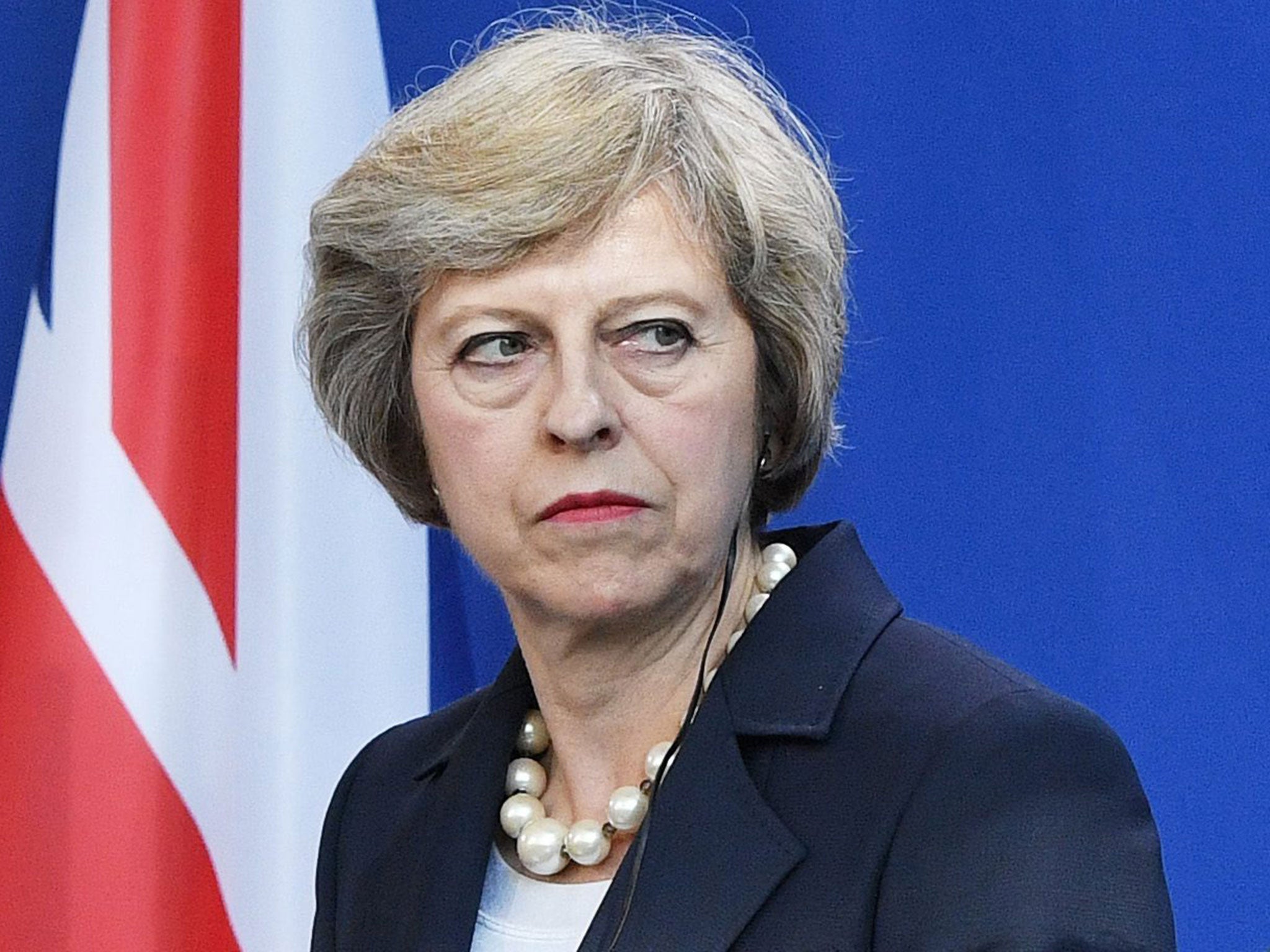Downing Street has refused to elaborate on how Theresa May would reform capitalism – after it emerged her new policy chief drew up plans for a radical wave of right-wing free market policies.
The Prime Minister pledged to crack down on irresponsible behaviour by large companies following revelations about Sir Philip Green’s time running collapsed shopping chain BHS.
But asked to explain how the PM’s rhetoric about changing capitalism would actually translate into policy, a Downing Street spokesperson on Monday declined to float or suggest even a single policy.
“I’m not going to start setting out policy – it’s right that a government that only took office ten days ago takes some time to think about these policies carefully and we’ll set further approaches on this in due course,” she told an official briefing of journalists in Parliament.
She later added: “I wouldn’t encourage speculation on this area. The point I would make is we need to take the time now to look at what the issues and the drivers are and to look at what the policy options are. I don’t think we should get ahead of ourselves.”
The lack of clarity came after it emerged that Ms May’s new policy chief, George Freeman, developed plans during the last government for a lower minimum wage in poorer areas and opt-outs for corporations from employment protections.
In 2013 Mr Freeman co-authored a paper arguing that the minimum wage and public sector pay should be “regionalised”.
‘The Innovation Economy Industrial Policy’, a pamphlet which he co-wrote with fellow MP Kwasi Kwarteng, suggests reductions in the minimum wage and public sector pay could help the poorest areas.
Other suggestions included slashing corporation taxes, abolishing subsidies for green energy, and exempting corporations from paying tax or having to follow employment rights for their first three years.
The Conservative MP has been appointed to chair Ms May’s policy board.
“Over the next few months, I will be working with the Prime Minister and her team helping set out key areas of the new Government's programme on the deep economic and social reforms we need to make the economy work for everyone in our society,” he said in a statement on his appointment.
The 6 most important issues Theresa May needs to address
Show all 6The Financial Times reported on Monday that Ms May was considering new legislation to curb sky-high directors’ pay and improve corporate governance. She has previously suggested that worker representatives could be elected to company boards.
The renewed interest in reforming capitalism comes after a report by the House of Commons Work and Pensions Select Committee laid the blame for BHS’s collapse on Sir Philip’s head.
Labour’s shadow business and energy secretary Jon Trickett was among voices calling for the boss to be stripped of his knighthood. The frontbencher argued that the Government should launch “an immediate and thorough review of how such companies are governed”.
“The Select Committee’s damning report shows how Phillip Green extracted millions from BHS over 15 years and then sold it to a bankruptee who went on to receive further millions from the company,” he added.
“But a range of well-known accountancy, banking and other companies who had a duty to provide professional independent advice failed to prevent the actions described in the report.
“This left 11,000 loyal hard-working people without a job and a massive pension deficit. No one should be allowed to keep a knighthood after such actions. He must also pay back the millions of pounds to the pension fund."
Downing Street’s spokesperson was clear that Ms May “has already set out that we need to tackle corporate irresponsibility and reform capitalism so that it works for everyone, not just a privileged few”.
“That means in the long run doing more to prevent a responsible and reckless behaviour,” she said.
“Of course, it’s right now that we look carefully at the policies linked to that and work out the best way forward.”
Subscribe to Independent Premium to bookmark this article
Want to bookmark your favourite articles and stories to read or reference later? Start your Independent Premium subscription today.


Join our commenting forum
Join thought-provoking conversations, follow other Independent readers and see their replies